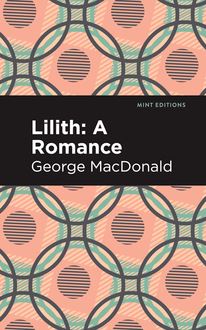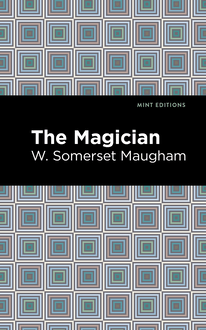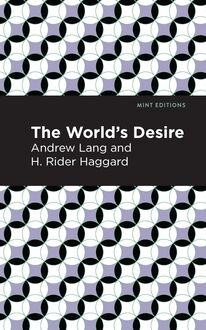-
 Univers
Univers
-
 Ebooks
Ebooks
-
 Livres audio
Livres audio
-
 Presse
Presse
-
 Podcasts
Podcasts
-
 BD
BD
-
 Documents
Documents
-
- Cours
- Révisions
- Ressources pédagogiques
- Sciences de l’éducation
- Manuels scolaires
- Langues
- Travaux de classe
- Annales de BEP
- Etudes supérieures
- Maternelle et primaire
- Fiches de lecture
- Orientation scolaire
- Méthodologie
- Corrigés de devoir
- Annales d’examens et concours
- Annales du bac
- Annales du brevet
- Rapports de stage
La lecture à portée de main
Vous pourrez modifier la taille du texte de cet ouvrage
Découvre YouScribe en t'inscrivant gratuitement
Je m'inscrisDécouvre YouScribe en t'inscrivant gratuitement
Je m'inscrisEn savoir plus
Vous pourrez modifier la taille du texte de cet ouvrage
En savoir plus

Description
She (1887), an intoxicating mix of adventure, fantasy, and romance, is an underappreciated classic of English literature. Among his most successful works, She—which was inspired by Haggard’s experience living in South Africa—helped the author establish his reputation as a leading writer of his generation and an invaluable pioneer of the lost world genre of fantasy fiction. Horace Holly, a young Cambridge professor, receives an unexpected opportunity from an older colleague: in exchange for knowledge about an ancient secret, Holly must agree to become the caretaker of Vincey’s son in the event of his untimely death. Cautious yet intrigued, Holly accepts, and is presented with a locked metal box and a set of cryptic instructions. The next day, Vincey dies, leaving the young Leo as his ward. Unable to open the box until Leo has turned 25, Holly settles into his career and duties as a father until the time is right. Years later, they open it to discover the Sherd of Amenartas, confirming Vincey’s story and inspiring them to journey to the heart of Africa. There, they fall captive to the Amahagger tribe, a lost people ruled by a powerful, divine queen. Soon, they are brought to a subterranean palace in the ruined city of Kôr, where She-who-must-be-obeyed awaits. To read H. Rider Haggard’s She is to enter a universe that could only be imagined by one of the greatest adventure writers of all time—at the height of his literary powers, no less. Published in book form in after being serialized in The Graphic, a British weekly magazine, She is an epic of high fantasy that sheds light on how the intricacies of empire circulated in the popular imagination of British subjects during the reign of Queen Victoria. For the modern reader, it is both a finely written tale of action and discovery, and a document of a world that is far from lost. Stories such as Haggard’s serve as reminders that we are never as far as we think from the sins of the past, that these “mysterious” and “exotic” lands of myth and adventure not only existed long before European conquest, but survive to this day in its shadow. With a beautifully designed cover and professionally typeset manuscript, this new edition of H. Rider Haggard’s She is a classic of English literature reimagined for modern readers.
Sujets
Informations
| Publié par | Mint Editions |
| Date de parution | 14 mai 2021 |
| Nombre de lectures | 1 |
| EAN13 | 9781513265636 |
| Langue | English |
| Poids de l'ouvrage | 1 Mo |
Informations légales : prix de location à la page 0,0500€. Cette information est donnée uniquement à titre indicatif conformément à la législation en vigueur.
Extrait
She
H. Rider Haggard
She was first published in 1886.
This edition published by Mint Editions 2021.
ISBN 9781513264950 | E-ISBN 9781513265636
Published by Mint Editions®
minteditionbooks.com
Publishing Director: Jennifer Newens
Design & Production: Rachel Lopez Metzger
Project Manager: Micaela Clark
Typesetting: Westchester Publishing Services
I inscribe this history to
A NDREW L ANG
in token of personal regard
and of
my sincere admiration
for his learning and his works
C ONTENTS I NTRODUCTION I. M Y V ISITOR II. T HE Y EARS R OLL B Y III. T HE S HERD OF A MENARTAS IV. T HE S QUALL V. T HE H EAD OF THE E THIOPIAN VI. A N E ARLY C HRISTIAN C EREMONY VII. U STANE S INGS VIII. T HE F EAST , AND A FTER ! IX. A L ITTLE F OOT X. S PECULATIONS XI. T HE P LAIN OF K ÔR XII. “S HE ” XIII. A YESHA U NVEILS XIV. A S OUL IN H ELL XV. A YESHA G IVES J UDGMENT XVI. T HE T OMBS OF K ÔR XVII. T HE B ALANCE T URNS XVIII. “G O , W OMAN !” XIX. “G IVE M E A B LACK G OAT !” XX. T RIUMPH XXI. T HE D EAD AND L IVING M EET XXII. J OB H AS A P RESENTIMENT XXIII. T HE T EMPLE OF T RUTH XXIV. W ALKING THE P LANK XXV. T HE S PIRIT OF L IFE XXVI. W HAT W E S AW XXVII. W E L EAP XXVIII. O VER THE M OUNTAIN
I NTRODUCTION
I n giving to the world the record of what, looked at as an adventure only, is I suppose one of the most wonderful and mysterious experiences ever undergone by mortal men, I feel it incumbent on me to explain what my exact connection with it is. And so I may as well say at once that I am not the narrator but only the editor of this extraordinary history, and then go on to tell how it found its way into my hands.
Some years ago I, the editor, was stopping with a friend, “ vir doctissimus et amicus neus ,” at a certain University, which for the purposes of this history we will call Cambridge, and was one day much struck with the appearance of two persons whom I saw going arm-in-arm down the street. One of these gentlemen was I think, without exception, the handsomest young fellow I have ever seen. He was very tall, very broad, and had a look of power and a grace of bearing that seemed as native to him as it is to a wild stag. In addition his face was almost without flaw—a good face as well as a beautiful one, and when he lifted his hat, which he did just then to a passing lady, I saw that his head was covered with little golden curls growing close to the scalp.
“Good gracious!” I said to my friend, with whom I was walking, “why, that fellow looks like a statue of Apollo come to life. What a splendid man he is!”
“Yes,” he answered, “he is the handsomest man in the University, and one of the nicest too. They call him ‘the Greek god’; but look at the other one, he’s Vincey’s (that’s the god’s name) guardian, and supposed to be full of every kind of information. They call him ‘Charon.’” I looked, and found the older man quite as interesting in his way as the glorified specimen of humanity at his side. He appeared to be about forty years of age, and was I think as ugly as his companion was handsome. To begin with, he was shortish, rather bow-legged, very deep chested, and with unusually long arms. He had dark hair and small eyes, and the hair grew right down on his forehead, and his whiskers grew right up to his hair, so that there was uncommonly little of his countenance to be seen. Altogether he reminded me forcibly of a gorilla, and yet there was something very pleasing and genial about the man’s eye. I remember saying that I should like to know him.
“All right,” answered my friend, “nothing easier. I know Vincey; I’ll introduce you,” and he did, and for some minutes we stood chatting— about the Zulu people, I think, for I had just returned from the Cape at the time. Presently, however, a stoutish lady, whose name I do not remember, came along the pavement, accompanied by a pretty fair-haired girl, and these two Mr. Vincey, who clearly knew them well, at once joined, walking off in their company. I remember being rather amused because of the change in the expression of the elder man, whose name I discovered was Holly, when he saw the ladies advancing. He suddenly stopped short in his talk, cast a reproachful look at his companion, and, with an abrupt nod to myself, turned and marched off alone across the street. I heard afterwards that he was popularly supposed to be as much afraid of a woman as most people are of a mad dog, which accounted for his precipitate retreat. I cannot say, however, that young Vincey showed much aversion to feminine society on this occasion. Indeed I remember laughing, and remarking to my friend at the time that he was not the sort of man whom it would be desirable to introduce to the lady one was going to marry, since it was exceedingly probable that the acquaintance would end in a transfer of her affections. He was altogether too good-looking, and, what is more, he had none of that consciousness and conceit about him which usually afflicts handsome men, and makes them deservedly disliked by their fellows.
That same evening my visit came to an end, and this was the last I saw or heard of “Charon” and “the Greek god” for many a long day. Indeed, I have never seen either of them from that hour to this, and do not think it probable that I shall. But a month ago I received a letter and two packets, one of manuscript, and on opening the first found that it was signed by “Horace Holly,” a name that at the moment was not familiar to me. It ran as follows:—
______ College, Cambridge, May 1, 18—
My dear Sir,
“You will be surprised, considering the very slight nature of our acquaintance, to get a letter from me. Indeed, I think I had better begin by reminding you that we once met, now some five years ago, when I and my ward Leo Vincey were introduced to you in the street at Cambridge. To be brief and come to my business. I have recently read with much interest a book of yours describing a Central African adventure. I take it that this book is partly true, and partly an effort of the imagination. However this may be, it has given me an idea. It happens, how you will see in the accompanying manuscript (which together with the Scarab, the ‘Royal Son of the Sun,’ and the original sherd, I am sending to you by hand), that my ward, or rather my adopted son Leo Vincey and myself have recently passed through a real African adventure, of a nature so much more marvellous than the one which you describe, that to tell the truth I am almost ashamed to submit it to you lest you should disbelieve my tale. You will see it stated in this manuscript that I, or rather we, had made up our minds not to make this history public during our joint lives. Nor should we alter our determination were it not for a circumstance which has recently arisen. We are for reasons that, after perusing this manuscript, you may be able to guess, going away again this time to Central Asia where, if anywhere upon this earth, wisdom is to be found, and we anticipate that our sojourn there will be a long one. Possibly we shall not return. Under these altered conditions it has become a question whether we are justified in withholding from the world an account of a phenomenon which we believe to be of unparalleled interest, merely because our private life is involved, or because we are afraid of ridicule and doubt being cast upon our statements. I hold one view about this matter, and Leo holds another, and finally, after much discussion, we have come to a compromise, namely, to send the history to you, giving you full leave to publish it if you think fit, the only stipulation being that you shall disguise our real names, and as much concerning our personal identity as is consistent with the maintenance of the bona fides of the narrative.
“And now what am I to say further? I really do not know beyond once more repeating that everything is described in the accompanying manuscript exactly as it happened. As regards She herself I have nothing to add. Day by day we gave greater occasion to regret that we did not better avail ourselves of our opportunities to obtain more information from that marvellous woman. Who was she? How did she first come to the Caves of K ô r, and what was her real religion? We never ascertained, and now, alas! we never shall, at least not yet. These and many other questions arise in my mind, but what is the good of asking them now?
“Will you undertake the task? We give you complete freedom, and as a reward you will, we believe, have the credit of presenting to the world the most wonderful history, as distinguished from romance, that its records can show. Read the manuscript (which I have copied out fairly for your benefit), and let me know.
Believe me, very truly yours,
L. Horace Holly 1
P.S.—Of course, if any profit results from the sale of the writing should you care to undertake its publication, you can do what you like with it, but if there is a loss I will leave instructions with my lawyers, Messrs. Geoffrey and Jordan, to meet it. We entrust the sherd, the scarab, and the parchments to your keeping, till such time as we demand them back again.
L. H. H.
This letter, as may be imagined, astonished me considerably, but when I came to look at the MS., which the pressure of other work prevented me from doing for a fortnight, I was still more astonished, as I think the reader will be also, and at once made up my mind to press on with the matter. I wrote to this effect to Mr. Holly, but a week afterwards received a letter from that gentleman’s lawyers, returning my own, with the information that their client and Mr. Leo Vincey had already left this country for Thibet, and they did not at present know their address.
Well, that is all I have to say. Of the history itself the reader must judge. I give it him, with the exception of a very few alterations, made with the object of concealing the identity of the actors from the general public, exactly as it came to me. Personally I hav
-
 Univers
Univers
-
 Ebooks
Ebooks
-
 Livres audio
Livres audio
-
 Presse
Presse
-
 Podcasts
Podcasts
-
 BD
BD
-
 Documents
Documents
-
Jeunesse
-
Littérature
-
Ressources professionnelles
-
Santé et bien-être
-
Savoirs
-
Education
-
Loisirs et hobbies
-
Art, musique et cinéma
-
Actualité et débat de société
-
Jeunesse
-
Littérature
-
Ressources professionnelles
-
Santé et bien-être
-
Savoirs
-
Education
-
Loisirs et hobbies
-
Art, musique et cinéma
-
Actualité et débat de société
-
Actualités
-
Lifestyle
-
Presse jeunesse
-
Presse professionnelle
-
Pratique
-
Presse sportive
-
Presse internationale
-
Culture & Médias
-
Action et Aventures
-
Science-fiction et Fantasy
-
Société
-
Jeunesse
-
Littérature
-
Ressources professionnelles
-
Santé et bien-être
-
Savoirs
-
Education
-
Loisirs et hobbies
-
Art, musique et cinéma
-
Actualité et débat de société
- Cours
- Révisions
- Ressources pédagogiques
- Sciences de l’éducation
- Manuels scolaires
- Langues
- Travaux de classe
- Annales de BEP
- Etudes supérieures
- Maternelle et primaire
- Fiches de lecture
- Orientation scolaire
- Méthodologie
- Corrigés de devoir
- Annales d’examens et concours
- Annales du bac
- Annales du brevet
- Rapports de stage




















